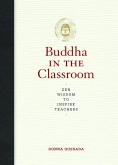Inside the first house is a man who suspects his wife is sleeping with somebody else. He spends every minute of every day, in a state of paranoid suspicion. Right now, listening to her phone conversation, creeping along, crouching under the row of expensive paintings in the long corridor, he hopes the floor doesn’t crack with his sneaky footsteps, giving him him away, betraying his jealousy.
Inside the second house is a 25-year-old woman with an eating disorder. At least five days of every week are spent alternately binging and purging, and taking no pleasure from the compulsive acts. Her throat, her teeth, and her stomach are destroyed, and she lives with the fact that she is killing herself, and can’t stop. The other two days are spent in isolation, hunger, and vile self hatred.
Inside the third house is a mother too afraid to answer the phone, yet simultaneously too afraid to stray too far from the house, because her son is in Iraq, and news of her only son’s status might be delivered at any moment.
Inside the fourth house is a 33-year-old aging cover model, losing jobs to 18-year-olds. She curses at her face in the mirror, and doesn’t have any more will to get out of bed in the morning. She owes 20,000 dollars in debt from lost pay, yet just accepted one more credit card offer to schedule plastic surgery on her neck and eyes, in the hope that it will make her better and that it will make her like herself better.
Inside the fifth house is a heroin addict. He is missing out on his children’s young years, but can’t stop. Making it worse, is his wife, who calls him a loser, taunting him daily for his weakness. Every time he tries to give it up for good, he gets violently ill, and gives in to the urge to shoot up again, even though he knows it is only a temporary pleasure. It’s gotten to the point where he stands to lose his job, his wife, and the house. He no longer enjoys being sober because of the agonizing guilt that eats him alive.
Inside the sixth house is a 60-year-old woman who has just been diagnosed with incurable cancer. She knows her body will soon start to break down, and that she will have to soon face her death. She will have to come to grips with the fact that she will never see her grandchildren, or her husband, or her dogs, again.
Inside the seventh house is an 85-year-old woman who lost her husband five years ago. Having lost her will to live, she lies in bed all day long, surrounded by the dusty antique knick-knacks she spent her life collecting. Her social security checks go entirely to the illegal caretakers, paid to help her go to the bathroom, and take her to the doctor. She refuses to leave her home and go to an elderly home.
Inside the eigth house is a 19-year-old boy with agoraphobia. Stepping outside of the house is like hanging off a bridge, sweaty fingers slipping, no one to catch you. He takes his xanax, and sits in front of his computer, wearing the mask of his artificial identity, chatting in forums, witty and sarcastic on screen, hating himself all the while on the inside because he’s lonely and bored, and it never goes away.
Inside the ninth house is a 30-year-old ambitious office worker, who just missed out on a promotion due to the fact that his scheming female colleague in the next cubicle claimed his idea as her own, taking all the credit and the rewards. He takes his seething hatred out on other women, in the form of abusive relationships that leave him feeling more empty and worthless, rather than potent, and valued.
Inside the tenth house – the smallest house on the block – is a newlywed couple who bought this fixer-upper because it was the only house they could afford, given their loan qualifications. Because their house is at the end of the street, they are forced to drive past the other more glorious houses every day, going to and fro work. He imagines his neighbors’ luxurious lives, Saturday barbeques, and big TV screens; and she is filled with increasing bitterness toward him, for promising a new kitchen, plumbing that works, bathrooms she can decorate in coordinated colors, like in the magazines. Yet the months go by, and still her husband has done nothing to improve their house. Their relationship is quickly turning bitter.
To Reflect On…
-This is the meaning of samsara (life sucks, but only if mind sucks.)
-This is the meaning of the expression, where ever you go, there you are (all is perception.)
-This is why it makes no sense to covet (addiction is an everyday affair.)
-This is why it makes no sense to look for happiness on the outside (pleasure is not happiness – it has a dark side)
-This is why it makes no sense to look for happiness at all – it’s not a thing to get! (it is a by-product of presence.)
-This is why the masters say to wake up to what is (to accept.)
-This is the meaning of the saying, you don’t have to believe your thoughts (thoughts are kind of like, secretions.)
-This is why monks meditate (meditating is dealing with what’s in front of you.)
-This is why you have to put out your own fire first (you create the world.)
 On action alone be thy interest… Never on its fruits. Let not the fruits of action be thy motive, nor be thy attachment to inaction. ~Bhagavad Gita
On action alone be thy interest… Never on its fruits. Let not the fruits of action be thy motive, nor be thy attachment to inaction. ~Bhagavad Gita







